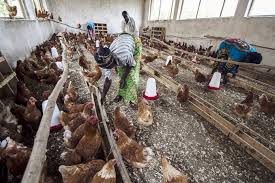UN agency urges heightened vigilance after H5N1 outbreaks in West and Central Africa
UN agency urges heightened vigilance after H5N1 outbreaks in
West and Central Africa
13 July – The United Nations Food and Agricultural Organization
(FAO) altered Western and Central African governments to be
vigilant, and to continue their raised surveillance and prevention
efforts after H5N1 avian influenza outbreaks were recently confirmed
in chicken farms in Cameroon.
“We’re looking at a quickly spreading disease that has devastating
effects on livelihoods in communities,” said Abebe Haile Gabriel,
FAO Deputy Regional Representative for Africa, in a news release
today.
“H5N1 causes major losses of nutritious food and threatens farmers’
livelihoods, particularly in resource-poor environments where
governments have difficulty providing financial compensation for
losses,” he added.
The agency added that the H5N1 strain of avian influenza has caused the death of tens of millions of poultry and losses of
tens of billions of dollars worldwide since the virus first spread internationally in 2013. In Cameroon alone, losses have
added up to an estimated $20 million, according to local media reports.
The recent outbreak in Cameroon has brought the number of countries that have battled bird flu in West and Central Africa
to six, also including Burkina Faso, Cote d’Ivoire, Ghana, Niger and Nigeria.
FAO has also called on the governments to include common messaging to the public and data sharing between the public
health and agriculture sectors as part of their prevention efforts.
The statement further noted that a major concern is that the disease may become endemic in the entire region, particularly in
Nigeria where avian influenza has become so entrenched in poultry production and marketing systems that it will be difficult
to eliminate.
For that reason, FAO said, producers and traders need to be made aware about the clinical signs of the disease symptoms,
how and to whom to report it, and implement good hygiene practices to halt its spread.
Source:Un news
